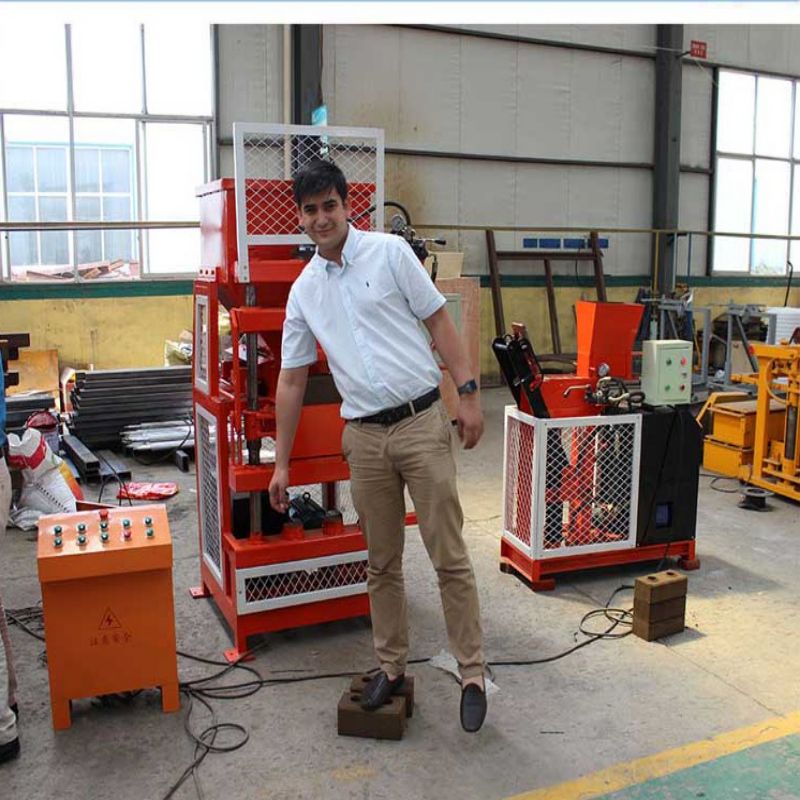
image source: Aiwei block machine
Introduction
Government policies and regulations play a crucial role in shaping the Chinese brick making machine industry. These policies aim to ensure sustainable development, promote technological advancements, and address environmental concerns associated with brick manufacturing. In this article, we will explore the key government policies and regulations impacting the Chinese brick making machine industry and their implications for manufacturers, the environment, and the construction sector.
Environmental Regulations
The Chinese government has implemented stringent environmental regulations to address the pollution and resource consumption associated with brick manufacturing. These regulations aim to reduce emissions, promote energy efficiency, and encourage the adoption of cleaner technologies. The following are some notable environmental regulations impacting the industry:
a. Emission Standards:
The Chinese government has set strict emission standards for brick kilns, targeting pollutants such as particulate matter, sulfur dioxide, and nitrogen oxide. Brick making machines must comply with these standards to ensure minimal environmental impact.
b. Energy Efficiency Requirements:
To promote energy conservation, brick making machines are required to meet specific energy efficiency targets. This encourages manufacturers to adopt energy-efficient technologies and processes, such as improved insulation, waste heat recovery, and optimized combustion systems.
c. Environmental Impact Assessments:
Before establishing or expanding a brick manufacturing facility, companies must undergo environmental impact assessments to evaluate the potential environmental consequences. These assessments help identify and mitigate potential environmental risks.
Sustainable Development Initiatives
The Chinese government has introduced various sustainable development initiatives to promote eco-friendly practices in the brick making machine industry. These initiatives encourage manufacturers to adopt cleaner production techniques and reduce their environmental footprint. Some key initiatives include:
a. Circular Economy Promotion:
The government encourages the adoption of circular economy principles, promoting the use of recycled materials, waste reduction, and resource conservation in brick manufacturing. This involves recycling and reusing construction and demolition waste as raw materials for brick production.
b. Green Financing and Incentives:
Financial incentives, tax breaks, and subsidies are provided to manufacturers who adopt sustainable practices, invest in cleaner technologies, and reduce their environmental impact. This encourages companies to make environmentally friendly choices and upgrade their brick making machines accordingly.
c. Research and Development Support:
The government supports research and development initiatives aimed at improving the efficiency, quality, and sustainability of brick making machines. This includes funding for innovation projects, collaborations with research institutions, and technology transfer programs.
Safety Standards and Occupational Health
Government regulations also focus on ensuring the safety of workers in the brick making machine industry. These regulations aim to minimize accidents, protect workers’ health, and promote safe working conditions. Some key safety standards and regulations include:
a. Occupational Health and Safety Standards:
The government mandates compliance with occupational health and safety standards to safeguard workers from hazards associated with brick manufacturing. This includes requirements for proper ventilation, protective equipment, and machinery safety features.
b. Training and Certification:
Operators and technicians working with brick making machines are required to undergo training programs and obtain relevant certifications to ensure they have the necessary skills and knowledge to operate the machinery safely.
Export and Import Regulations
Government policies also impact the export and import of Chinese brick making machines. These policies aim to regulate the industry’s international trade, protect domestic manufacturers, and ensure compliance with international standards. Some key export and import regulations include:
a. Quality Certifications:
Chinese brick making machines must comply with quality certifications and standards, such as ISO certification, to ensure they meet international quality requirements and are eligible for export.
b. Import Tariffs and Duties:
The government may impose import tariffs and duties on brick making machines to protect domestic manufacturers from unfair competition and promote the growth of the domestic industry.
c. Trade Agreements and Cooperation:
The government actively engages in trade agreements and cooperation with other countries to promote the export of Chinese brick making machines and expand market access for manufacturers.
Conclusion
Government policies and regulations have a significant impact on the Chinese brick making machine industry. Environmental regulations promote sustainable practices, energy efficiency, and emission reduction, aligning the industry with global sustainability goals. Safety standards ensure the well-being of workers, and export and import regulations govern international trade. As the industry continues to evolve, it is crucial for manufacturers to stay updated with the changing regulatory landscape and embrace sustainable and innovative practices to thrive in the market while contributing to a greener and safer construction sector.